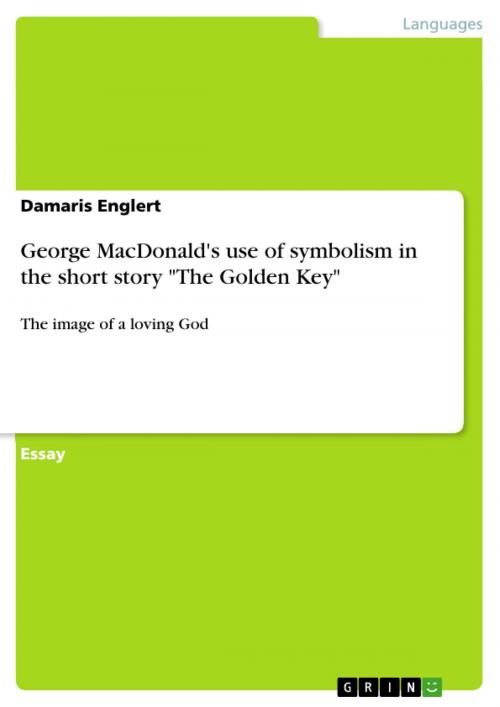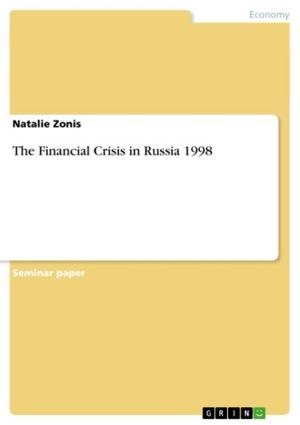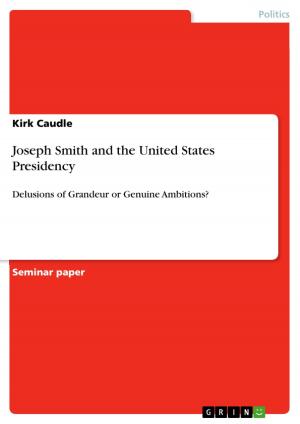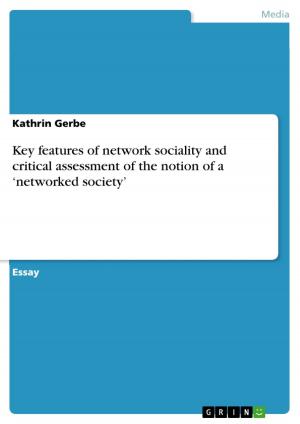George MacDonald's use of symbolism in the short story 'The Golden Key'
The image of a loving God
Fiction & Literature, Literary Theory & Criticism, British| Author: | Damaris Englert | ISBN: | 9783640639472 |
| Publisher: | GRIN Publishing | Publication: | June 8, 2010 |
| Imprint: | GRIN Publishing | Language: | English |
| Author: | Damaris Englert |
| ISBN: | 9783640639472 |
| Publisher: | GRIN Publishing |
| Publication: | June 8, 2010 |
| Imprint: | GRIN Publishing |
| Language: | English |
Essay from the year 2009 in the subject English - Literature, Works, grade: 1,7, , course: Proseminar 'Scottish supernatural and mystery stories', language: English, abstract: The image of a loving God George MacDonald's popular short story 'The Golden Key' seems to be a story for children, but examining it more closely, it suddenly reveals itself to be much more than a fairy tale. George MacDonald does not only address children, he wants to reach the adults, outlining his vision of God that presents the exact opposite to the traditional Calvinistic theology of his time. In this essay I want to show how the author uses symbolism to illustrate a new though at the same time old concept of God - a God whose 'love was over all and in all and covered all' (Phillips 1987, 139). By interpreting the use of symbolism in 'The Golden Key', I will point out this image of a loving God which shines through the whole story and which is the author's message.
Essay from the year 2009 in the subject English - Literature, Works, grade: 1,7, , course: Proseminar 'Scottish supernatural and mystery stories', language: English, abstract: The image of a loving God George MacDonald's popular short story 'The Golden Key' seems to be a story for children, but examining it more closely, it suddenly reveals itself to be much more than a fairy tale. George MacDonald does not only address children, he wants to reach the adults, outlining his vision of God that presents the exact opposite to the traditional Calvinistic theology of his time. In this essay I want to show how the author uses symbolism to illustrate a new though at the same time old concept of God - a God whose 'love was over all and in all and covered all' (Phillips 1987, 139). By interpreting the use of symbolism in 'The Golden Key', I will point out this image of a loving God which shines through the whole story and which is the author's message.















